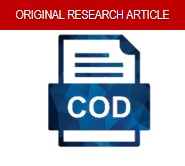Analysis of Criminal Law and Islamic Criminal Law on Sanctions for Justice Collaborators
Brigadier Joshua Murder
DOI:
https://doi.org/10.46924/jihk.v6i1.213Keywords:
Criminak Law, Islamic Law, Justice CollaboratorsAbstract
This research examines the role of justice collaborators in murder cases under Indonesian positive law and Islamic criminal law, focusing on the case of Brigadier Joshua’s murder. The study analyzes the regulations for criminal sanctions applied to justice collaborators and explores how Islamic law views such sanctions. The research employs a normative methodology with a comparative approach, utilizing secondary data sources. The findings reveal that while Indonesian law provides for leniency in sentencing justice collaborators, the specific reduction is left to judicial discretion. In the case study, Bharada Richard Eliezer received a significantly reduced sentence for his cooperation. Islamic law similarly allows for forgiveness and sentence reduction, particularly in cases of qisas, diyat, and ta’zir punishments. The study concludes that both legal systems recognize the importance of justice collaborators in uncovering complex crimes, but lack specific regulations on sentence reductions. The authors recommend developing more comprehensive legislation to govern reduced sentences for perpetrator witnesses in both systems.
Downloads
References
Bardi, Ahmad. “Kewenangan LPSK Dalam Penetapan Justice Collaborator Dalam Kasus Tindak Pidana Umum Di Indonesia: Studi Putusan No. 798/Pid.B/2022/PN. Jkt.Sel.” UnizarLawReview 6, no. 1 (2023): 38–46. https://doi.org/10.36679/ulr.v6i1.41.
Basanti, Alifia Nur, and Tajul Arifin. “Perlindungan Hukum Terhadap Justice Collaborator Ditinjau Dari UU 31/2014 Dan Hukum Islam.” Jurnal Hukum Dan Sosial Politik 1, no. 3 (2023): 99–110. https://doi.org/10.59581/jhsp-widyakarya.v1i3.546.
Krisdayanti, Aprillia. “Perlindungan Hukum Bagi Justice Collaborator Dalam Pengungkapan Tindak Pidana Pembunuhan Berencana.” Lex Renaissance 7, no. 4 (2022): 803–818. https://doi.org/10.20885/JLR.vol7.iss4.art8.
Mentari, Besse Muqita Rijal. “Saksi Pidana Pembunuhan Dalam Kitab Undang-Undang Hukum Pidana Dengan Hukum Islam.” Al-Ishlah: Jurnal Ilmiah Hukum 23, no. 1 (2020): 1–38. https://doi.org/10.56087/aijih.v23i1.33.
Novita, Rini. “Perlindungan Hukum Terhadap Justice Collaborator Dalam Dalam Peradilan Di Indonesia.” Jurnal Ilmiah Metadata 5, no. 3 (2023): 376–90. https://doi.org/10.47652/metadata.v5i3.415.
Pane, Ismail, and Mara Ongku Hsb. “Justice Collaborator Dalam Tindak Pidana Pembunuhan Perspektif Maqasid Syariah.” Jurnal Al-Maqasid: Jurnal Ilmu Kesyariahan Dan Keperdataan 9, no. 1 (2023): 57–71. https://doi.org/10.24952/almaqasid.v9i1.7420.
Putra, Verdy Cahyana, and Hery Firmansyah. “Keringanan Hukuman Bagi Saksi Yang Bekerjasama (Justice Collaborator) Dalam Kasus Pembunuhan Berencana: Studi Putusan Nomor. 798/Pid.B/2022/PN.Jkt.Sel.” Unes Law Review 5, no. 4 (2023): 2963–73. https://doi.org/10.31933/unesrev.v5i4.628.
Rismilda, Marisa Aulia. “Eksistensi Justice Collaborator Dalam Mengungkap Suatu Tindak Pidana Berdasarkan Sema RI No. 4 Tahun 2011.” Jurnal Parhesia Universitas Mataram 1, no. 1 (2023): 92–98. https://doi.org/10.29303/parhesia.v1i1.2573.
Saragih, Radisman. “Justice Collaborator in the Perspective of Indonesian Criminal Law.” Advances in Social Sciences Research Journal 10, no. 8 (2023): 220–227. https://doi.org/10.14738/assrj.108.15304.
Simamora, Nomero Armandheo, and Edi Pranoto. “Tinjauan Yuridis Penetapan Status Seseorang Sebagai Justice Collaborator Di Indonesia.” Iblam Law Review 3, no. 1 (2023): 49–60. https://doi.org/10.52249/ilr.v3i1.115.
Sinaga, Hasudungan. “Juridical Analysis of People of The Crime of Planning Murder as Justice Collaborators According to Criminal Law in Indonesia.” Iblam Law Review 2, no. 3 (2022): 191–204. https://doi.org/10.52249/ilr.v2i3.232.
Sugiarto, Totok, Wawan Susilo, and Purwanto Purwanto. “Studi Komparatif Konsep Tindak Pidana Dalam Hukum Pidana Indonesia Dan Hukum Pidana Islam.” Al-Qanun: Jurnal Pemikiran Dan Pembaharuan Hukum Islam 25, no. 2 (2022): 219–32. https://doi.org/10.15642/alqanun.2022.25.2.219-232.
Sutanti, Rahmi Dwi. “Kebijakan Formulasi Saksi Pelaku Yang Bekerjasama (Justice Collaborator) Sebagai Alasan Peringanan Pidana Dalam Rangka Pembaruan Hukum Pidana Nasional.” Law Reform 8, no. 2 (2013): 146–65. https://doi.org/10.14710/lr.v8i2.12429.
Yulis, Sari, Muksalmina Muksalmina, and Muhammad Rudi Syahputra. “Kebijakan Hukuman Qishas Bagi Pelaku Pembunuhan Dalam Qanun Jinayat Aceh.” Suloh: Jurnal Fakultas Hukum Universitas Malikussaleh 11, no. 2 (2023): 531–47. https://doi.org/10.29103/sjp.v11i2.5129.
Thesis
Machmud, Baharudin. “Analisis Hukum Pidana Islam Terhadap Keringanan Pidana Bagi Justice Collaborator Dalam Pasal 10a Ayat 3 Undang-Undang Republik Indonesia Nomor 31 Tahun 2014 Tentang Perlindungan Saksi Dan Korban.” Universitas Islam Negeri Walisongo Semarang, 2019. https://eprints.walisongo.ac.id/id/eprint/9700/.
Yudhawan, Rifki, and Natangsa Surbakti. “Peran Justice Collaborator Dalam Mengungkap Kasus Pembunuhan Berencana Terorganisir: Studi Kasus Tewasnya Brigadir Nofriansyah Yosua Hutabarat.” Universitas Muhammadiyah Surakarta, 2023. https://eprints.ums.ac.id/120598/.
Books
Chandra, Tofik Yanuar. KPK Dan Kewenangan Penetapan Status Justice Collaborator. Bekasi: PT Sangir Multi Usaha, 2022.
Muhaimin, Muhaimin. Metode Penelitian Hukum. Mataram: Mataram University Press, 2020.
Regulations
Kementerian Sekertaris Negara Republik Indonesia. Kitab Undang-Undang Hukum Acara Pidana Pasal 1 Angka 26 (1981). https://jdih.mahkamahagung.go.id/storage/uploads/produk_hukum/file/KUHAP.pdf.
Mahkamah Agung Indonesia. Surat Edaran Mahkamah Agung Nomor 4 Tahun 2011 Tentang Perlakuan Bagi Pelapor Tindak Pidana (Whistleblower) dan Saksi Pelaku Yang Bekerjasama (Justice Collaborators) di dalam Perkara Tindak Pidana Tertentu (2011). https://jdih.mahkamahagung.go.id/legal-product/sema-nomor-4-tahun-2011/detail.
Republik Indonesia. Kitab Undang-Undang Hukum Pidana (KUHP) Pasal 340 (1946).
———. Undang-undang (UU) No. 31 Tahun 2014 tentang Perubahan atas Undang-Undang Nomor 13 Tahun 2006 Tentang Perlindungan Saksi dan Korban (2014). https://peraturan.bpk.go.id/Details/38701/uu-no-31-tahun-2014.
Web Pages
Farisa, Fitria Chusna. “Perjalanan Richard Eliezer Di Kasus Brigadir J: Jadi Tersangka Pertama, Kini Divonis Paling Ringan.” Kompas.com, 2023. https://nasional.kompas.com/read/2023/02/16/15065331/perjalanan-richard-eliezer-di-kasus-brigadir-j-jadi-tersangka-pertama-kini?page=all.
Downloads
Published
Issue
Section
License
Authors who publish with this journal agree to the following terms:
- Copyright on any article is retained by the author(s).
- The author grants the journal, the right of first publication with the work simultaneously licensed under a Creative Commons Attribution License that allows others to share the work with an acknowledgment of the work’s authorship and initial publication in this journal.
- Authors are able to enter into separate, additional contractual arrangements for the non-exclusive distribution of the journal’s published version of the work (e.g., post it to an institutional repository or publish it in a book), with an acknowledgment of its initial publication in this journal.
- Authors are permitted and encouraged to post their work online (e.g., in institutional repositories or on their website) prior to and during the submission process, as it can lead to productive exchanges, as well as earlier and greater citation of published work.
- The article and any associated published material is distributed under the Creative Commons Attribution 4.0 International License



 Sinta ID:
Sinta ID: 


















